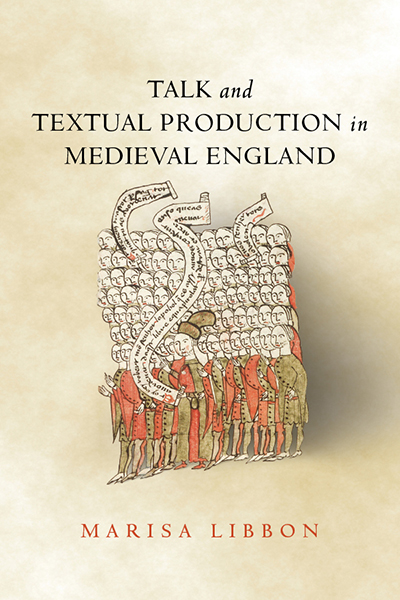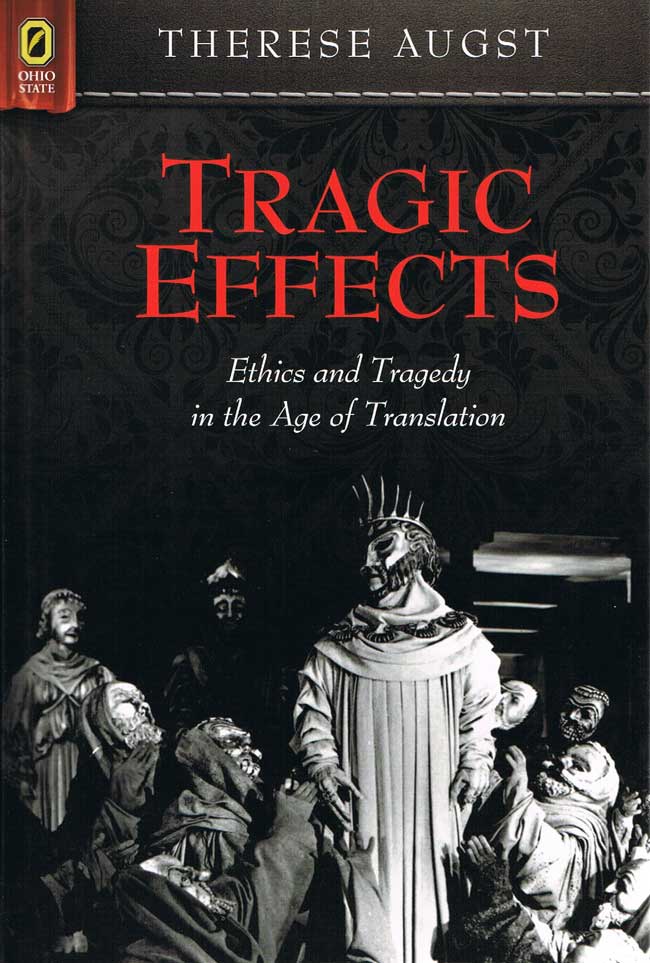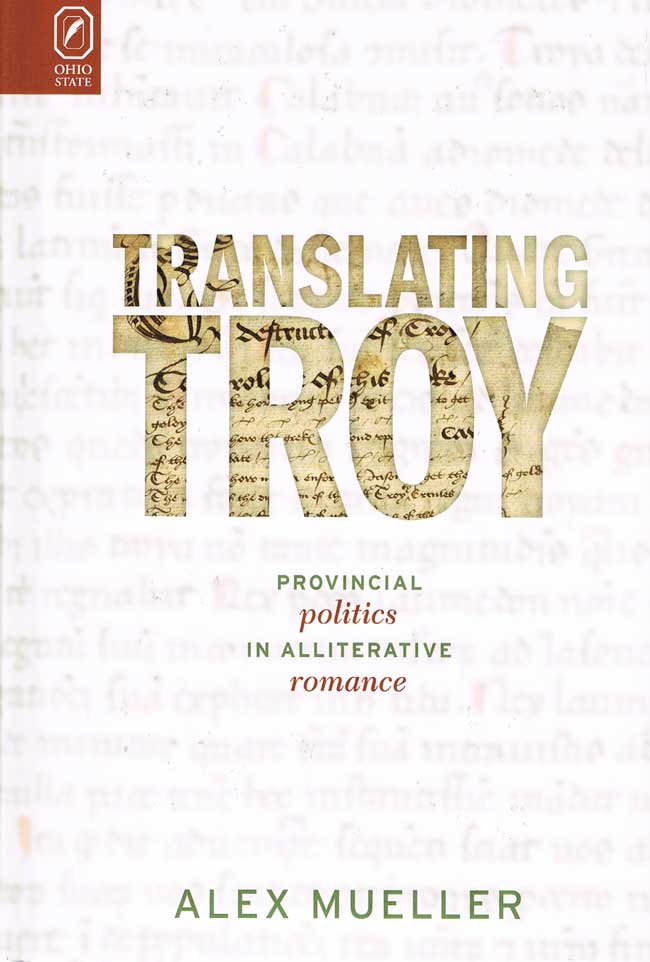“Incisive, clarifying, and often trenchant … Talk and Textual Production in Medieval England will be required reading for anyone working on Richard Coeur de Lion, and on the manuscript history of medieval romance more generally.” —Heather Blurton, Studies in the Age of Chaucer
“Marisa Libbon has provided evidence and argument about the seven manuscripts of the romance Richard Coeur de Lion that will fascinate anyone interested in book history … Plotted out cleverly and written with verve, Talk and Textual Production is a credit to the series in which it appears.” —Edwin Craun, The Medieval Review
“Strikingly original and thought-provoking … Talk should be an essential feature of manuscript and archival studies, book history, and historiography. Libbon shows us how important it is and how well it can work.” —Jamie K. Taylor, Manuscript Studies
“A brilliant book—bold and engaging, full of fresh insights.” —Eleanor Johnson, author of Practicing Literary Theory in the Middle Ages
“Talk and Textual Production in Medieval England convincingly integrates manuscript studies and book history with readings of the social urgencies that drive literary production. It is beautifully written, original in its evidential strategies, and richly, deeply, and productively researched.” —Christine Chism, author of Alliterative Revivals
People in medieval England talked, and yet we seldom talk or write about their talk. People conversed not within literary texts, but in the world in which those texts were composed and copied. The absence of such talk from our record of the medieval past is strange. Its absence from our formulation of medieval literary history is stranger still. In Talk and Textual Production in Medieval England, Marisa Libbon argues that talk among medieval England’s public, especially talk about history and identity, was essential to the production of texts and was a fundamental part of the transmission and reception of literature. Examining Richard I’s life as an exemplary subject of medieval England’s class-crossing talk about the past, Libbon advances a theory of how talk circulates history, identity, and cultural memory over time. By identifying sites of local talk about England's past, from law courts to palace chambers, and tracing rumors about Richard that circulated during his life and long after his death, Libbon offers a literary history of Richard that accounts for the spaces between and around extant manuscript copies of Middle English romances like Richard Coeur de Lion, insular and Continental chronicles, and chansons de geste with figures such as Charlemagne and Roland. These spaces, usually dismissed as silent, tell us about the processes of writing and reading and illuminate the intangible daily life in which textual production occurred. In revealing the pressures that talk about the past exerted on textual production, this bookrelocates the power of making culture and collective memory to a wider, collaborative authorship in medieval England.
Marisa Libbon is Assistant Professor of Literature and Medieval Studies at Bard College.
Contents
Acknowledgments
Abbreviations
Note on Translations and Transcriptions
Introduction Tuning Our Ears
1 Local Talk and the Retrospective Text
2 Public Talk and Legal Fictions
3 Talking Pictures in Fourteenth-Century London
4 The Conversant Codex
5 English Rumor and the Modular Manuscript
Epilogue Turning Up the Archive
Bibliography
Index




